Certified Copy (2010): does originality exist? | ¿existe la originalidad?

Escrita y dirigida por Abbas Kiarostami
There are movies that for some reason haunt us for a long time until we decide to take a look at them. Whether because other stories got in the way or because I couldn't decide on it, the truth is that for years I found the name of this film in Instagram recommendations, in lists of French films, or one of the most notable films of the first decade of the 21st century, and it wasn't until a couple of weeks ago that I decided to see it and I was pleasantly surprised.
Hay películas que por alguna razón nos rondan durante mucho tiempo hasta que nos decidimos a darles un vistazo. Ya sea porque otras historias se interpusieron o porque no terminaba de decidirme por ella, lo cierto es que durante años fue encontrándome el nombre de esta cinta en recomendaciones de instagram, en listas de películas francesas, o de las más destacadas de la primera década del siglo XXI, y no fue sino hasta hace un par de semanas que decidí verla y me llevé más de una grata sospresa.
The first surprise was that, although I had understood the film as French, it is a co-production between France, Italy and Iran. I understood the presence of those first two countries because the story takes place in Italy and because I already knew that the protagonist was Juliette Binoche, one of the most important French actresses of recent times, but Iran? It was then that I got my second surprise and understood why the Instagram algorithm occasionally threw me information about this story: because it was written and directed by Abbas Kiarostami. If this name doesn't sound familiar to you, it's because you haven't seen any Asian cinema or because perhaps you haven't seen many films from the 90s and early 2000s, but the Iranian director is responsible for creating several cult films and gems like Close-Up, Where's My Friend's House?, The Wind Will Carry Us and two of my favorite films of his: Ten, a lesson in resource optimization and minimalism with a wonderful female protagonist; and The Taste of Cherries, an existentialist drama that poses a very interesting dilemma and that won him the Palme d'Or at the Cannes Festival in 1997. So, being a film written and directed by Abbas Kiarostami, the first he filmed outside of its native country, and starring Juliette Binoche (a duo that I didn't know had worked together), I finally decided to watch it a couple of weeks ago.
La primera sorpresa fue que, si bien la película la tenía entendida como francesa, es una co producción entre Francia, Italia e Irán. Entendí la presencia de esos dos primeros países porque la historia transcurre en Italia y porque ya sabía que la protagonista era Juliette Binoche, una de las actrices francesas más importantes de los últimos tiempos, pero ¿Irán? fue entonces cuando me llevé mi segunda sorpresa y entendí por qué el algoritmo de instagram me arrojaba de vez en cuando información sobre esta historia: porque fue escrita y dirigida por Abbas Kiarostami. Si no les suena este nombre es porque les falta ver algo de cine asiático o porque tal vez no hayan visto muchas películas de los años noventa, principios de los dos mil, pero el director iraní es responsable de haber creado varias películas de culto y joyas cinematográficas como Close-Up, Where's My Friend's House?, The Wind Will Carry Us y dos de mis películas favoritas suyas: Ten, una cátedra de optimización de recursos y minimalismo con una protagonista femenina maravillosa; y The Taste of Cherries, un drama existencialista que plantea un dilema interesantísimo y que le valió la Palma de Oro en el Festival de Cannes en 1997. Entonces, al tratarse de una película escrita y dirigida por Abbas Kiarostami, la primera que filmó fuera de su país natal, y estar protagonizada por Juliette Binoche (una dupla que no sabía que había trabajado junta) me decidí por fin a verla hace un par de semanas.
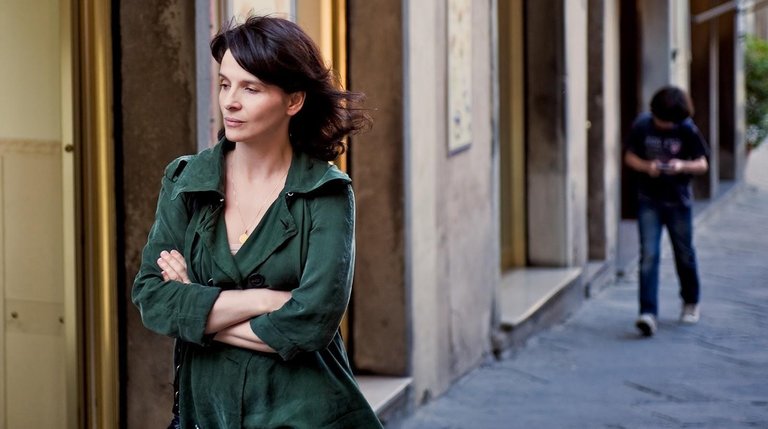
Although Copie conforme (Roonevesht barabar asl ast in Iranian and Certified Copy in English) is considered a romantic film, or rather a romantic drama, I think the core of the film is not a story of love (or lack of it) but rather a philosophical and artistic dilemma that begins to be addressed almost from the beginning of the story: is a good copy better than a bad original?
Si bien Copie conforme (Roonevesht barabar asl ast en iraní y Certified Copy en inglés) está considerada como una película romántica, o como un drama romántico más bien, creo que el centro de la película no es una historia de amor (o desamor) sino un dilema filosófico y artístico que se comienza a tratar casi desde el inicio de la historia: ¿es mejor una buena copia que un mal original?
The story begins in Arezzo, a small town located in Tuscany, and there an acclaimed English writer named James Miller (William Shimell) presents his new book called exactly like the movie, Certified Copy, in which he supports the idea of the value of the copy (artistic reproductions of paintings, sculptures, etc.) because according to him each reproduction is in itself an original. Defending something like that in a country like Italy, a kind of open-air museum, seems not only brave but risky, but copies are more common than one would believe and Miller does not defend the copy over the original, but adds to it value to a good reproduction, in addition to stating that an original is also, in some way, the reproduction of something else (even the Mona Lisa is a copy of the woman who inspired it, whether real or imaginary). It's a topic more typical of written essays than of a film, but I found the idea super interesting, especially because then the writer meets a French gallery owner (Juliette Binoche) with whom he has very stimulating conversations that first focus on life and art and then they become more personal. Certified Copy has sequences very much in the style of Before Sunset, conversations in the middle of long walks through European streets. But, unlike that one, in this case there is some ambiguity because it is not entirely clear if Miller and the woman in the gallery are two strangers who are playing to pretend to be a couple or if perhaps they are a couple who plays to pretend to be strangers.
La historia inicia en Arezzo, un pueblito ubicado en la Toscana y allí un aclamado escritor inglés llamado James Miller (William Shimell) presenta su nuevo libro llamado exactamente como la película, Certified Copy, en el cual sostiene la idea del valor de la copia (reproducciones artísticas de cuadros, esculturas, etc) porque según él cada reproducción es en sí mismo un original. Defender algo como eso en un país como Italia, una especie de museo a cielo abierto, parece no sólo valiente sino arriesgado, pero las copias son más comunes de lo que uno creería y Miller no defiende la copia sobre el original, sino que le agrega valor a una buena reproducción, además de enunciar que un original es también, de alguna forma, la reproducción de otra cosa (incluso la Mona Lisa es una copia de la mujer que la inspiró, haya sido real o imaginaria). Es un tema más propio de ensayos escritos que de una película, pero me pareció super interesante la idea, sobre todo porque luego el escritor conoce a una galerista francesa (Juliette Binoche) con quien sostiene conversaciones muy estimulantes que primero van sobre la vida y el arte y luego se vuelven más personales. Certified Copy tiene secuencias muy al estilo de Before Sunset, conversaciones en medio de largas caminatas por calles europeas. Pero, a diferencia de aquella, en este caso hay cierta ambigüedad porque no queda del todo claro si Miller y la mujer de la galería son dos desconocidos que juegan a hacerse pasar por una pareja o si acaso son una pareja que juega a hacerse pasar por dos desconocidos.
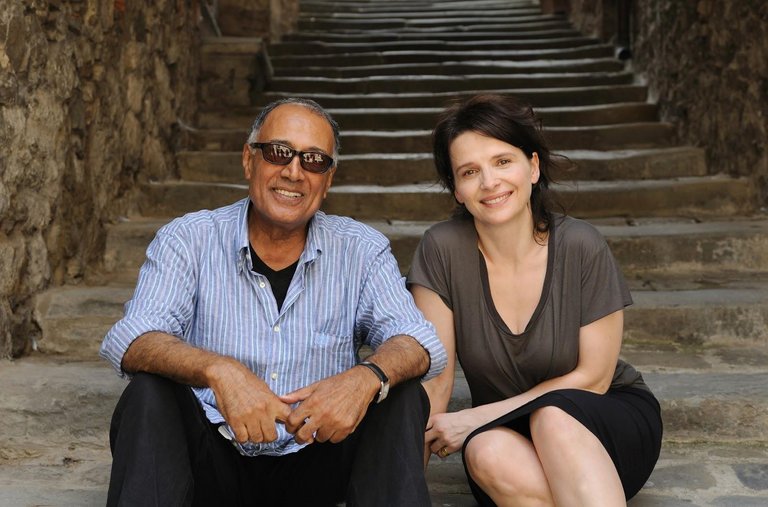
Compared to other romantic stories, this one may not be so romantic and I wouldn't include it among my favorites by Kiarostami, but the performances of the protagonists are very good (in fact, Binoche won the Best Actress award at Cannes for this role) and The simplicity of the script and the sequences are quite refreshing. More than a story or a plot, Certified Copy is for me a debate, a reflection, a conversation about art, life, love, like those we can have with a friend when leaving a museum or cinema. It is as if we were conversing with the director and through the characters we were also dialoguing with the artists. Does originality really exist, especially in these times, when, as Chuck Palahniuk says, everything is a copy of a copy of a copy? Is the artistic, plastic reproduction of something real a copy? Is it better to have a good copy than a bad original? Or does originality exist and therefore it is more important for something to be new than for it to be really good? If these questions are accompanied with examples of works, walking through a museum, a square, a gallery, wouldn't it be a wonderful experience? Perhaps that was precisely Kiarostami's intention, that we ourselves copy the protagonists of the film and had our own Certified Copy of these ideas. Have any of you seen this film? Do you know any other ones by Abbas Kiarostami? I read you in the comments.
En comparación con otras historias románticas, esta quizá no lo sea tanto y tampoco la incluiría entre mis favoritas de Kiarostami, pero las actuaciones de los protagonistas son muy buenas (de hecho, Binoche ganó el premio a Mejor Actriz en Cannes por este papel) y la sencillez del guión y de las secuencias son bastantes refrescantes. Más que una historia o una trama, Certified Copy es para mí un debate, una reflexión, una conversación sobre el arte, la vida, el amor, como de esas que podemos tener con un amigo al salir de un museo o del cine. Es como si conversáramos con el director y a través de los personajes también dialogáramos con los artistas ¿existe realmente la originalidad, sobre todo en estos tiempos, en los que, como dice Chuck Palahniuk, todo es una copia de una copia de una copia? ¿la reproducción artística, plástica, de algo real, es una copia? ¿es mejor tener una buena copia que un mal original? ¿o existe la originalidad y por tanto es más importante que algo sea nuevo a que sea realmente bueno? Si se acompañan estas preguntas con ejemplos de obras, paseando por un museo, una plaza, una galería, ¿no sería una experiencia maravillosa? acaso precisamente esa fuera la intención de Kiarostami, que nosotros mismos copiáramos a los protagonistas de la película y tuviéramos nuestra propia Copia Certificada sobre estas ideas, ¿alguno de ustedes ha visto esta película? ¿conocen alguna otra de Abbas Kiarostami? Los leo en los comentarios.
Reseñado por @cristiancaicedo
Other posts that may interest you | Otros posts que pueden interesarte:
 |
|---|
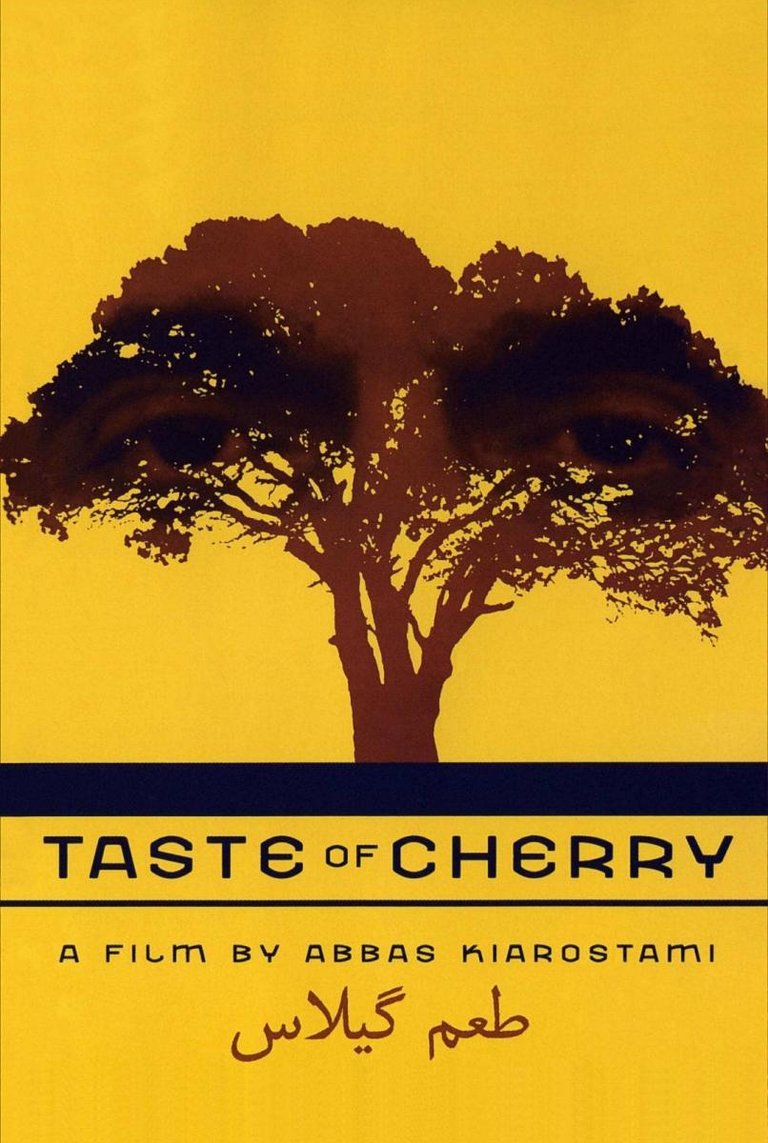
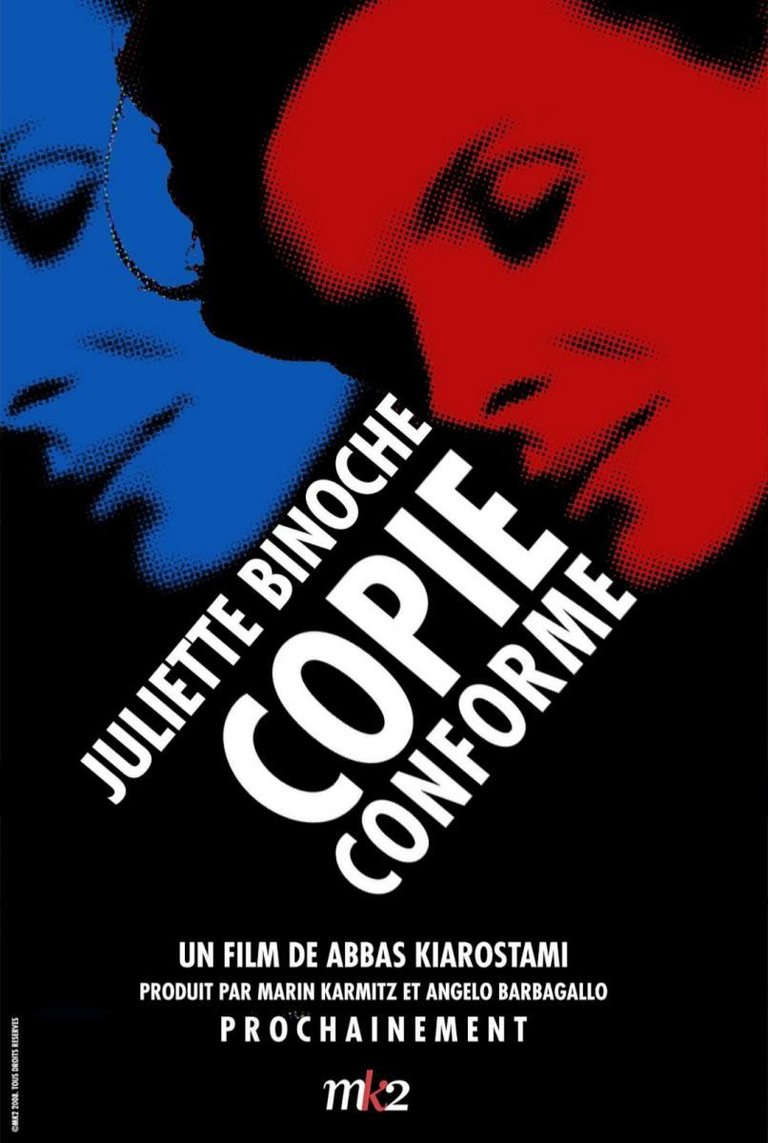
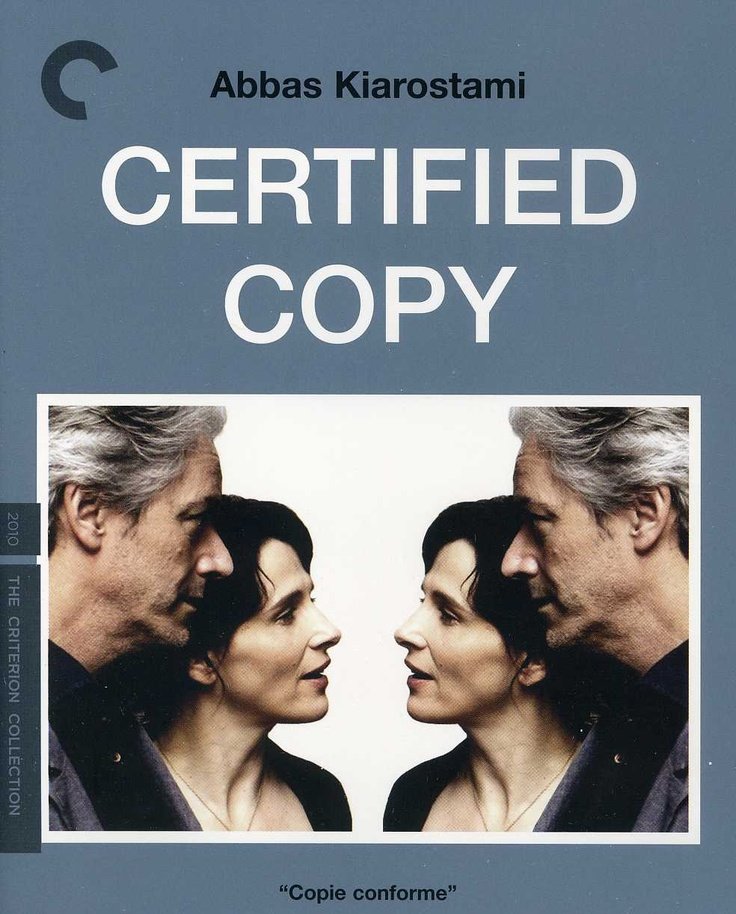
No lo he visto pero sé que es la película que amaria mi mamá 😅😅
No la he visto pero el titulo en ingles creo haberlo escuchado. Parece una buena pelicula, tendre que anotarla en mi lista :) no soy fan del romance pero todo lo que tenga trasfondo filosofico a mi me va :) gracias por la recomendacion!